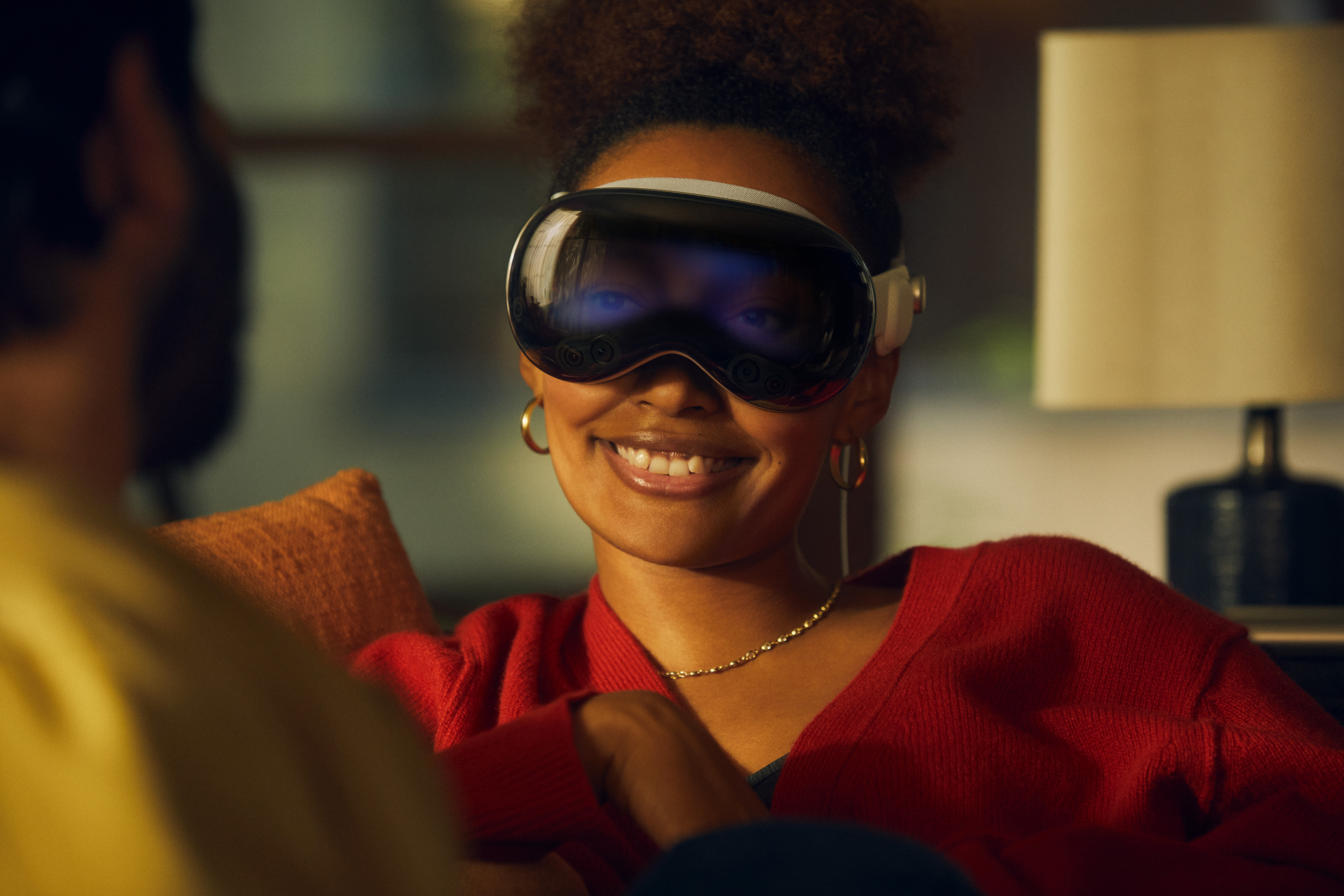
Apple said Monday that its pricey Vision Pro headset, the consumer electronics company’s bid to enter the virtual-reality market, is set for release on Friday, February 2.
With a lofty price of $3,499, the Vision Pro will retail at all U.S. Apple Stores, as well as on Apple’s website. But consumers can also pre-order the gadget beginning January 19 at 5 a.m. PT.
Apple even has a new TV ad for it, soundtracked by Devo's "Uncontrollable Urge" and patterned after its seminal iPhone messaging from back in the aughts:
The company also said that the add-on prescription lens inserts and the readers for the Vision Pro would cost $149 and $99 respectively, and that the headset would hold up to 256 GB of storage.
Announced at Apple’s Worldwide Developers Conference back in June, the rig was designed to blend digital content with the physical world, and will reportedy unlock powerful spatial experiences, controlled by the most natural inputs possible — a user’s eyes, hands and voice.
“The era of spatial computing has arrived,” said Tim Cook, Apple’s CEO. “Apple Vision Pro is the most advanced consumer electronics device ever created. Its revolutionary and magical user interface will redefine how we connect, create, and explore.”
Vision Pro will also allow users to capture and relive memories in the form of smart photos, images stored with both audio and visual information that play on the headset at life-size scale and detail. Users can even capture panoramas that expand and wrap around the user, transporting them to a virtual environment.
With its 23 million-pixel, ultra-high-resolution micro-OLED displays, the Vision Pro headset also allows user to toggle focus between the virtual world and the real one by tracking their attention, making the device transparent when exiting a virtual environment and giving visual cues to others about the users focus.
Since visionOS, the headset’s operating system, will leverage existing developer frameworks, it will reportedly host more than 1 million familiar apps across iOS and iPadOS for users to interact with in a three-dimensional space.
Several popular entertainment and productivity apps, including Disney Plus, Apple TV Plus, Slack and Microsoft 365 have already been announced for the platform.
Companies, including Meta, have pushed into virtual reality for several years, but so far consistent demand for VR devices has fallen short of expectations.







